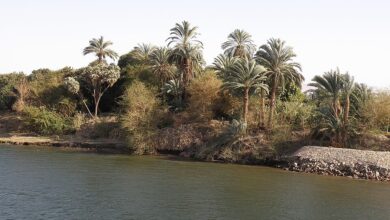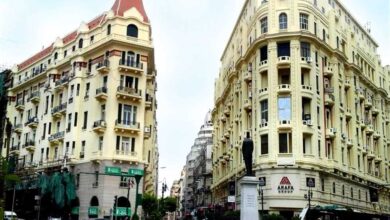Sinai community leaders have warned US officials that Egypt's plan to build an underground steel wall along the Gaza border may destabilize the peninsula, a new WikiLeaks cable has revealed.
The warnings were issued during various meetings held between local tribal figures and visiting American officials in Sinai. The cable, dated 25 Febraury, 2010, was leaked to Al-Masry Al-Youm and has not yet been published in WikiLeaks’ torrents.
In the document, one community leader is said to believe that the wall “will increase tensions on both sides of the border and could lead to violence in North Sinai as displaced smugglers look for other ways to make money.” The leader goes on to say that “comprehensive economic development is the solution to resolving Sinai's problems, including providing security, eliminating smuggling and controlling terrorism.”
Egypt has been constructing an underground barrier along the Gaza border since 2009, with the stated aim of halting underground trade activity in and out of the Strip. Smuggling of arms, goods and people between Gaza and Sinai has long been a source of livelihood for many local residents. Underground trade thrived even more after 2007, when Egypt and Israel imposed a coordinated blockade on Gaza to weaken the Hamas government.
Sinai Bedouins have had an uneasy relationship with the Egyptian state, which has gradually worsened since 2005 when the government responded to a string of bombings at Sinai resorts with a massive arrest campaign in the peninsula. Earlier this year, a series of clashes broke out between Bedouins and state authorities in search of local fugitives wanted for arms possession and smuggling, which threatened to further destabilize the area.
The new cable also highlights Sinai community leaders’ frustrations with the lack of economic development in the area, which has been exacerbated by Sinai’s unfavorable investment climate, on-going corruption and unfulfilled government promises.
In what might suggest US dissatisfaction with the Egyptian government’s performance in Sinai, the document reads: “During our February 9-11 trip, El Arish residents were excited that President [Hosni] Mubarak would visit the city for the first time in his 28-year presidency during the week of February 13. However, Mubarak did not make the visit and we have heard of no plans to reschedule.”
Sinai is one of the poorest and least developed areas in Egypt, a fact that is consistently represented in human development indicators. Home to about 1.3 million people, the region suffers from high unemployment, a lack of public services and severe infrastructural impediments. Many local tribesmen maintain that underdevelopment, particularly the absence of a proper education system, is a deliberate attempt on the part of the government to disempower residents living in the sensitive border area.
Meanwhile, foreign-funded initiatives have also failed to remedy Sinai’s socio-economic troubles in the eyes of many local residents. The cable underscores the local community’s growing frustration with a USAID-funded sustainable development initiative that aims to assist low-income and under-serviced Bedouin communities in Central Sinai. According to residents, the program remains “ineffective.”
In the meetings, local leaders expressed what they believe would constitute favorable development interventions. Their list includes detailed projects for water treatment, industrialization and agriculture to support the people of Sinai.
The cable also suggests that such meetings between American officials and local Sinai leaders have been a source of concern for the Egyptian government.
“The GoE [Government of Egypt] remains anxious about our Sinai contacts; we learned halfway through our meeting with local council members that the discussion was being recorded by Egyptian State Security (SSIS),” reads the cable.
Egyptian state-run media have periodically referred to visits by US officials to North Sinai, but have never imparted specifics about who they visited or what they discussed.




